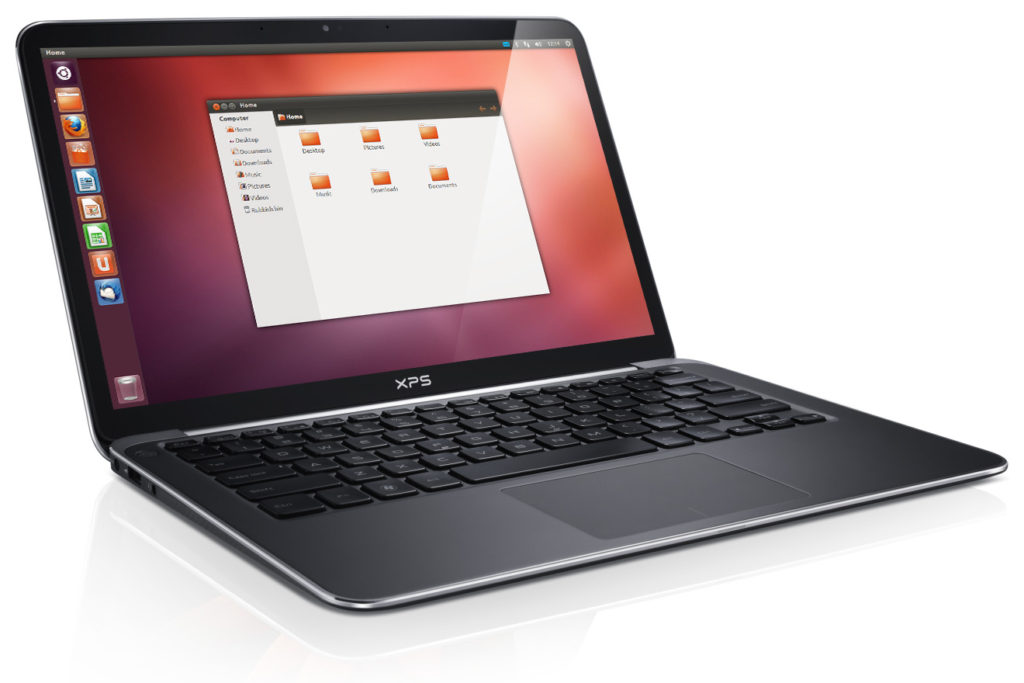Dell is all about Ubuntu
A couple months ago, my Samsung laptop went on the fritz and I was surprised to find myself tempted to purchase a Dell. It turned my Samsung needed a new battery. Normally, I’m brave enough to perform surgery but was made fearful after watching an online tear-down video for my model. My laptop has an abundance of screws to remove, plus the bottom of the laptop is made of a thin plastic. There are multiple places around the base that you need to unsnap. Listening to the repeated sounds of plastic crunching as the base was removed on the video only confirmed the fact that I needed to leave any repairs in the hands of a professional.
Lusting for something new
As a back-up plan, I started looking online for a potential replacement. Since I bought my laptop two years ago, the technology hasn’t advanced that much. Companies are still selling Intel i3, i5, and i7 processors. My Samsung is pretty basic, but it has a i5 processor with 6 GB of RAM. Current laptops with the same specs are now $200–300 dollars more expensive. I originally only paid a little over $400 USD (on sale) at Best Buy, which was an offer that I couldn’t refuse.
Simple laptops that don’t have gimmicky features seem to be a thing of the past. Now, they either have touch screens, can contort the screen in weird ways, or they’re hybrid tablets. The more I looked, the more I was convinced that fixing my current machine was my best option.
Unlikely Suitor
While searching for a replacement, I came across the Dell XPS 13 Developer Edition. I’ve never thought of purchasing a Dell. Years ago, I used to work at an ad agency where we had Dell as a client. I spent most of my work day creating advertising and direct mail for the PC juggernaut, but never thought of the company as a viable option when it comes to buying hardware. Like HP, I thought of them more as a business solution than a consumer one.
The XPS Developer Edition comes loaded with Ubuntu and competes with the Macbook Air for being aesthetically pleasing while delivering a strong performance. For an i5 chip, I wasn’t thrilled with paying $1K USD, but it would be a huge plus to have a laptop that was designed specifically for Ubuntu. I even went as far as to request a quote and negotiate a reduced final price. The border-less screen is beautiful and definitely adds to the laptops appeal. It’s kind of the equivalent of a digital infinity pool. Luckily, I was able to hang on to my current laptop and got it up and running within a week.
Cheaper Ubuntu alternative
Shortly after getting my laptop back from the repair shop, I started receiving Dell promo ads and content on social media sites. Google, Facebook and others tried to strike while the iron was hot, whispering sweet nothings consisting of great deals on a new Dell computer. Normally, I just ignore these ads but I started receiving messages about a lower-end Dell laptop running Ubuntu. It seems that Dell now offers both a 14″ and 15″ Inspiron 3000model. The specs aren’t amazing but the price more than makes up for it, starting under $300 USD. If the 14″ model would have been available just a month earlier, I would have been the owner of a new Dell, powered by Ubuntu.
The price of fixing my laptop and increasing the ram was almost equal in price to purchasing one of the lower-end Dell’s. For daily use, I don’t use my laptop for heavy computing, so the Dell would have been a great option, especially for the price.
Ubuntu first
For a little more than a year, I’ve been using my Ubuntu laptop as my main laptop. My iMac has been demoted to a jukebox with a 27″ display. I’ve phased out using Adobe outside of work, focusing on open-source software. It’s not been a painful transition, and I’m glad I’ve made the move to Linux. I’m glad to see large companies, like Dell, investing in Linux and giving consumers options outside of Microsoft. Both the XPS and Inspiron seem to be receiving good reviews online which is promising. Time will tell to see how deep Dell’s commitment will run with the Linux community, and it will interesting to see if consumers will support Ubuntu with their wallets. Dell is definitely a company I’m going to keeping my eye on and who knows, my laptop might need to be replaced sooner than expected.



Looks like a great option! thanks for the post. I have been looking for a good, affordable Linux laptop!
My pleasure! Let me know how it goes if you decide to purchase one of the Dells:)
I too have had my eye on that beautiful dell XPS – I think they’ve got something with the screen design. 🙂
I moved over to Ubuntu 3 or 4 years ago now, and embraced the Open Source philosophy. I’m never going back!
Good piece.
Thanks! Glad to know that there are others out there navigating through open source. I love the fact that Dell is designing with Ubuntu in mind. I think it will make people’s transition easier. That screen is the bee’s knees!